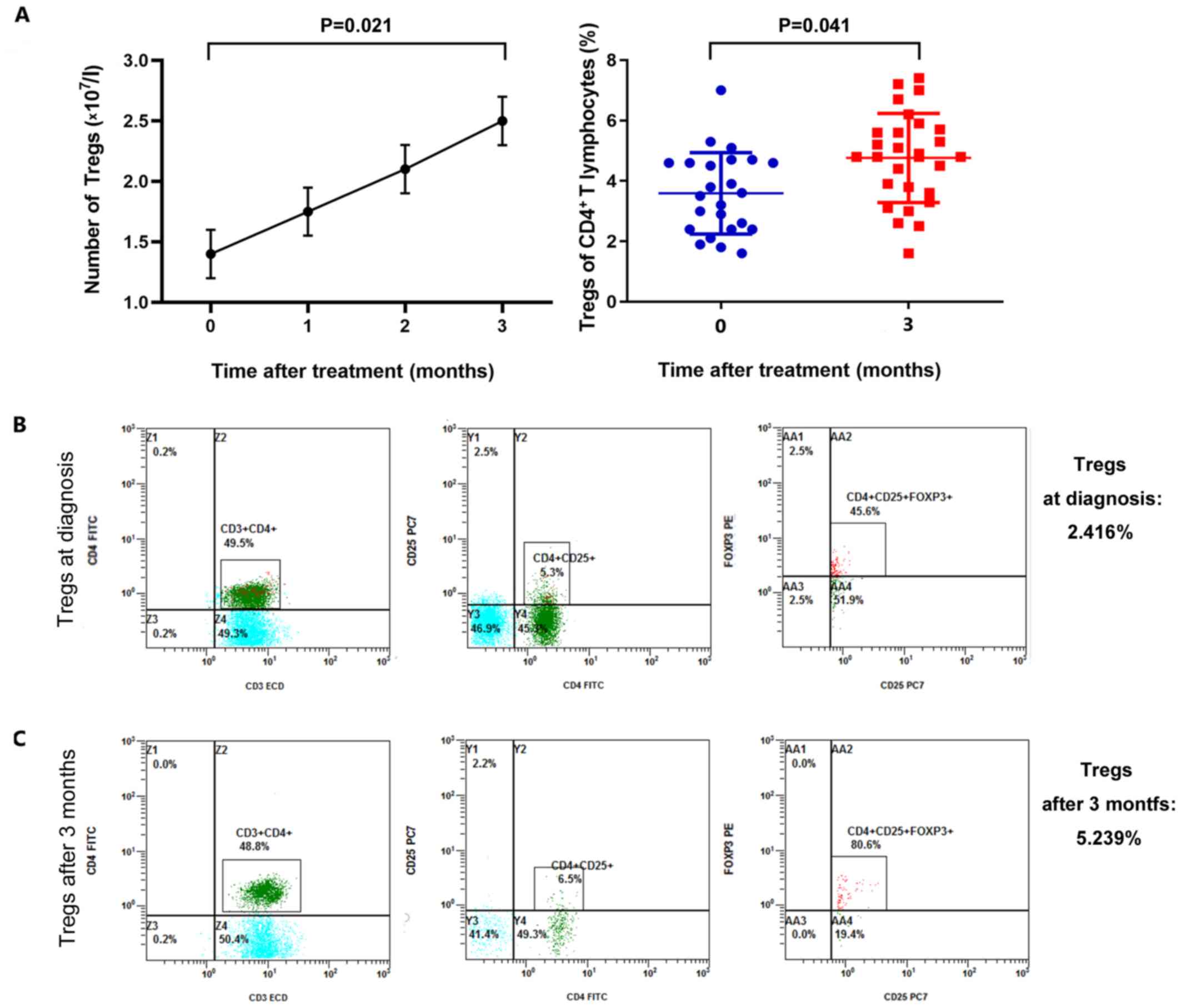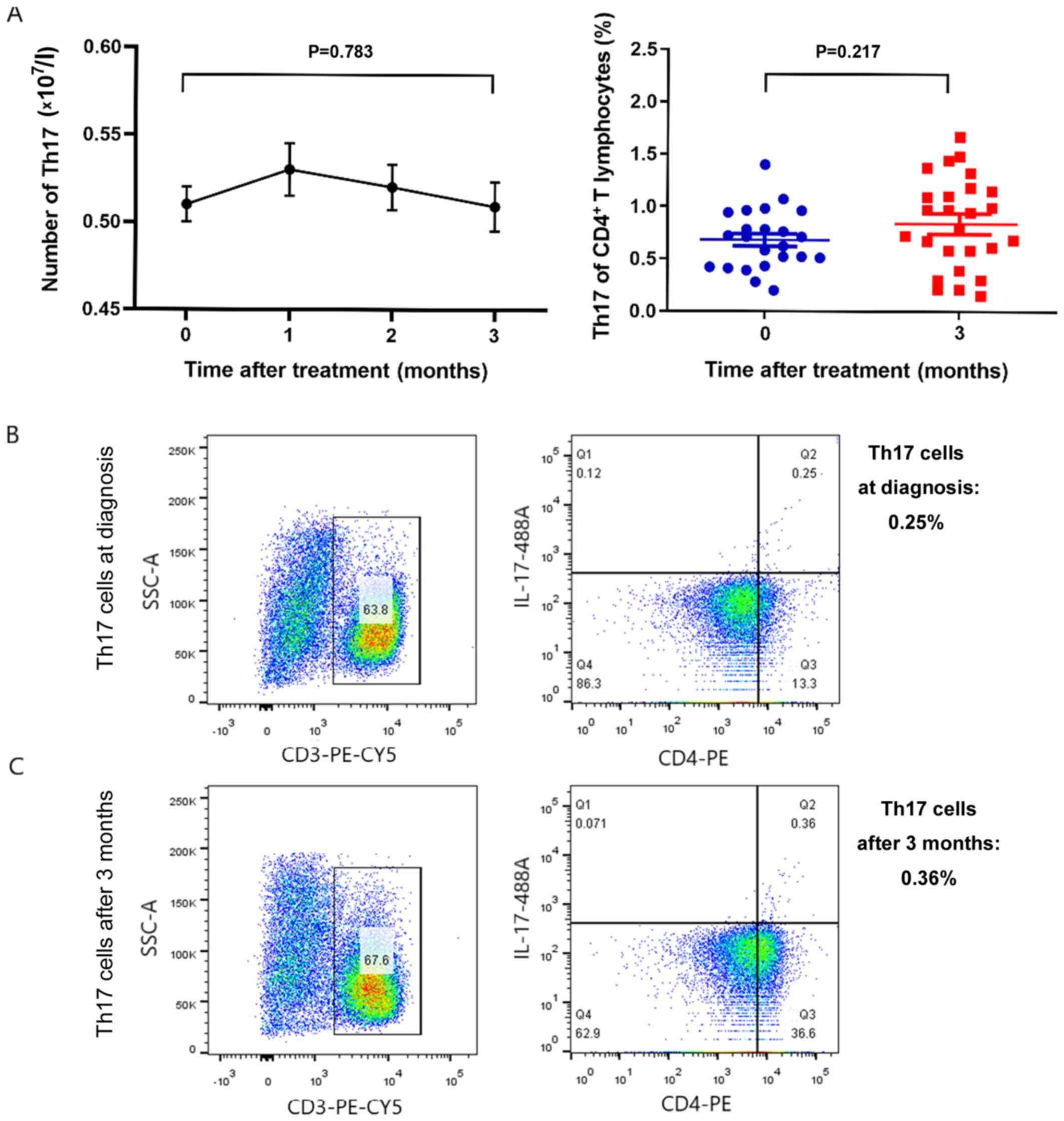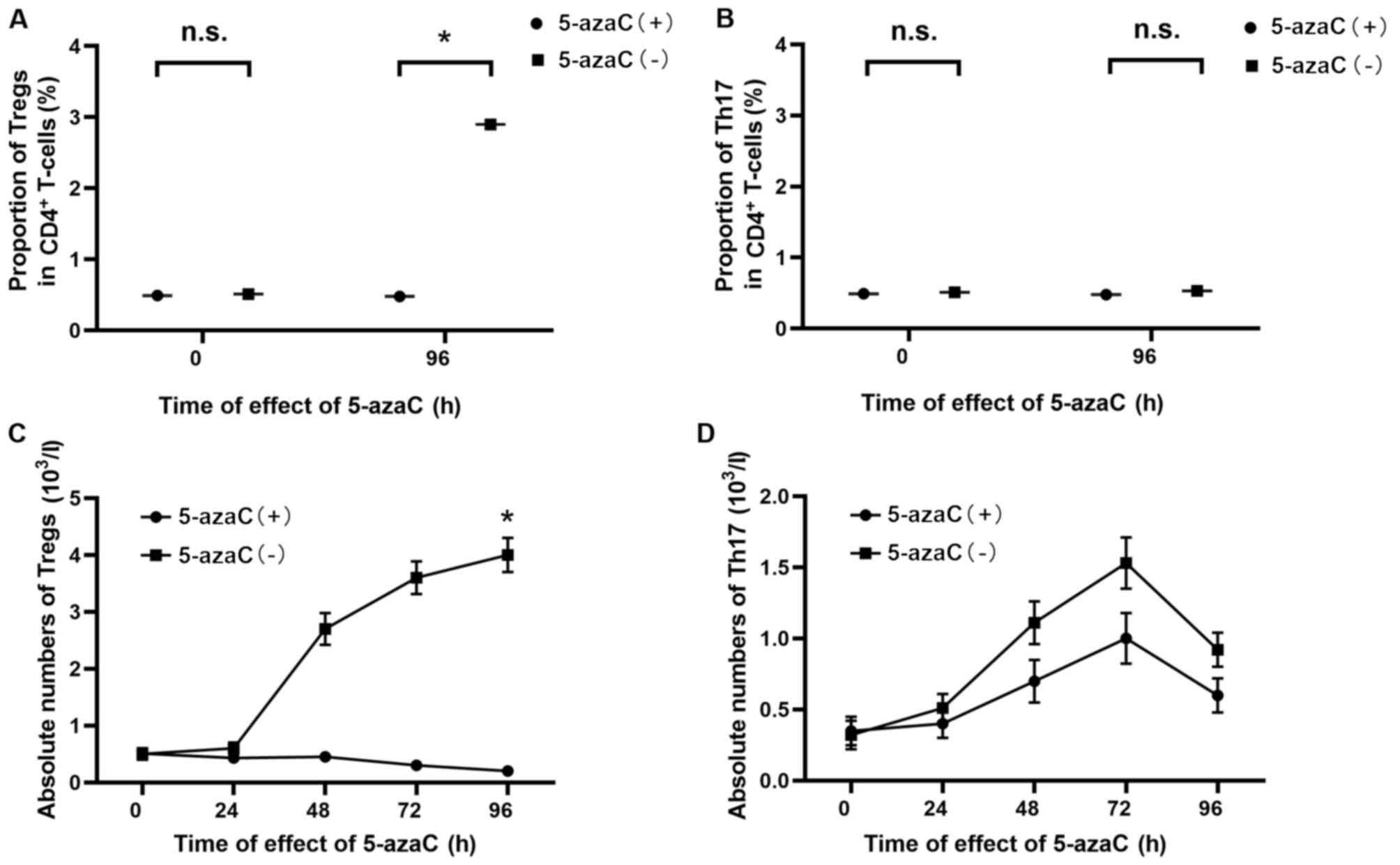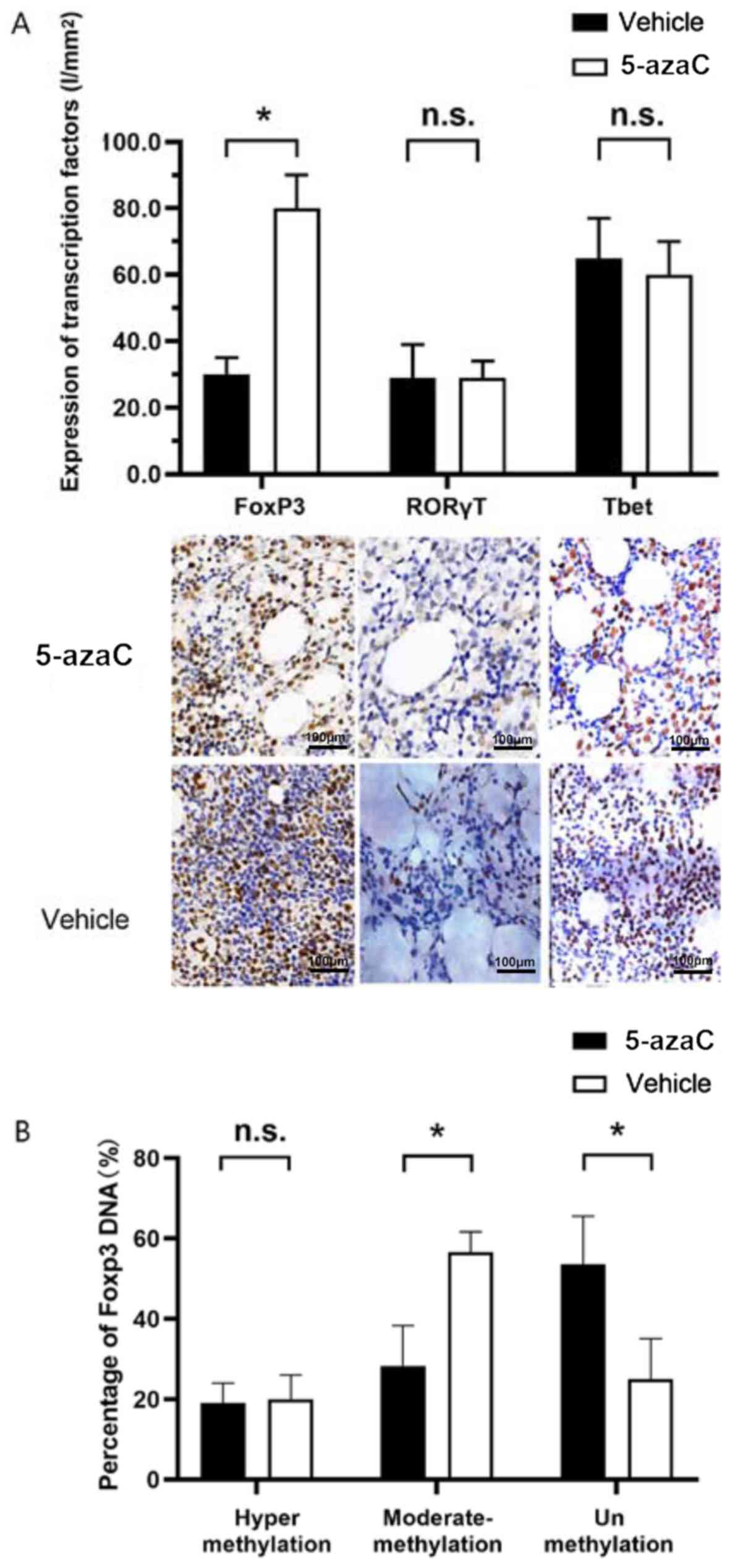|
1
|
Fenaux P, Mufti GJ, Hellstrom-Lindberg E,
Santini V, Finelli C, Giagounidis A, Schoch R, Gattermann N, Sanz
G, List A, et al International Vidaza High-Risk MDS Survival Study
Group, : Efficacy of azacitidine compared with that of conventional
care regimens in the treatment of higher-risk myelodysplastic
syndromes: A randomised, open-label, phase III study. Lancet Oncol.
10:223–232. 2009. View Article : Google Scholar : PubMed/NCBI
|
|
2
|
Fenaux P, Mufti GJ, Hellström-Lindberg E,
Santini V, Gattermann N, Germing U, Sanz G, List AF, Gore S,
Seymour JF, et al: Azacitidine prolongs overall survival compared
with conventional care regimens in elderly patients with low bone
marrow blast count acute myeloid leukemia. J Clin Oncol.
28:562–569. 2010. View Article : Google Scholar : PubMed/NCBI
|
|
3
|
Pinto A and Zagonel V:
5-Aza-2-deoxycytidine (Decitabine) and 5-azacytidine in the
treatment of acute myeloid leukemias and myelodysplastic syndromes:
Past, present and future trends. Leukemia. 7 (Suppl 1):51–60.
1993.PubMed/NCBI
|
|
4
|
Garcia-Manero G and Fenaux P:
Hypomethylating agents and other novel strategies in
myelodysplastic syndromes. J Clin Oncol. 29:516–523. 2011.
View Article : Google Scholar : PubMed/NCBI
|
|
5
|
Goodyear O, Agathanggelou A,
Novitzky-Basso I, Siddique S, McSkeane T, Ryan G, Vyas P, Cavenagh
J, Stankovic T, Moss P, et al: Induction of a CD8+
T-cell response to the MAGE cancer testis antigen by combined
treatment with azacitidine and sodium valproate in patients with
acute myeloid leukemia and myelodysplasia. Blood. 116:1908–1918.
2010. View Article : Google Scholar : PubMed/NCBI
|
|
6
|
Fandy TE, Herman JG, Kerns P, Jiemjit A,
Sugar EA, Choi SH, Yang AS, Aucott T, Dauses T, Odchimar-Reissig R,
et al: Early epigenetic changes and DNA damage do not predict
clinical response in an overlapping schedule of 5-azacytidine and
entinostat in patients with myeloid malignancies. Blood.
114:2764–2773. 2009. View Article : Google Scholar : PubMed/NCBI
|
|
7
|
Aggarwal S, van de Loosdrecht AA, Alhan C,
Ossenkoppele GJ, Westers TM and Bontkes HJ: Role of immune
responses in the pathogenesis of low-risk MDS and high-risk MDS:
Implications for immunotherapy. Br J Haematol. 153:568–581. 2011.
View Article : Google Scholar : PubMed/NCBI
|
|
8
|
Sánchez-Abarca LI, Gutierrez-Cosio S,
Santamaría C, Caballero-Velazquez T, Blanco B, Herrero-Sánchez C,
García JL, Carrancio S, Hernández-Campo P, González FJ, et al:
Immunomodulatory effect of 5-azacytidine (5-azaC): Potential role
in the transplantation setting. Blood. 115:107–121. 2010.
View Article : Google Scholar : PubMed/NCBI
|
|
9
|
Choi J, Ritchey J, Prior JL, Holt M,
Shannon WD, Deych E, Piwnica-Worms DR and DiPersio JF: In vivo
administration of hypomethylating agents mitigate graft-versus-host
disease without sacrificing graft-versus-leukemia. Blood.
116:129–139. 2010. View Article : Google Scholar : PubMed/NCBI
|
|
10
|
Kordasti SY, Afzali B, Lim Z, Ingram W,
Hayden J, Barber L, Matthews K, Chelliah R, Guinn B, Lombardi G, et
al: IL-17-producing CD4(+) T cells, pro-inflammatory cytokines and
apoptosis are increased in low risk myelodysplastic syndrome. Br J
Haematol. 145:64–72. 2009. View Article : Google Scholar : PubMed/NCBI
|
|
11
|
Kordasti SY, Ingram W, Hayden J, Darling
D, Barber L, Afzali B, Lombardi G, Wlodarski MW, Maciejewski JP,
Farzaneh F, et al: CD4+CD25high
Foxp3+ regulatory T cells in myelodysplastic syndrome
(MDS). Blood. 110:847–850. 2007. View Article : Google Scholar : PubMed/NCBI
|
|
12
|
Polansky JK, Kretschmer K, Freyer J,
Floess S, Garbe A, Baron U, Olek S, Hamann A, von Boehmer H and
Huehn J: DNA methylation controls Foxp3 gene expression. Eur J
Immunol. 38:1654–1663. 2008. View Article : Google Scholar : PubMed/NCBI
|
|
13
|
Livak KJ and Schmittgen TD: Analysis of
relative gene expression data using real-time quantitative PCR and
the 2(-Delta Delta C(T)) Method. Methods. 25:402–408. 2001.
View Article : Google Scholar : PubMed/NCBI
|
|
14
|
Lal G, Zhang N, van der Touw W, Ding Y, Ju
W, Bottinger EP, Reid SP, Levy DE and Bromberg JS: Epigenetic
regulation of Foxp3 expression in regulatory T cells by DNA
methylation. J Immunol. 182:259–273. 2009. View Article : Google Scholar : PubMed/NCBI
|
|
15
|
Nagar M, Vernitsky H, Cohen Y, Dominissini
D, Berkun Y, Rechavi G, Amariglio N and Goldstein I: Epigenetic
inheritance of DNA methylation limits activation-induced expression
of FOXP3 in conventional human CD25−CD4+ T
cells. Int Immunol. 20:1041–1055. 2008. View Article : Google Scholar : PubMed/NCBI
|
|
16
|
Costantini B, Kordasti SY, Kulasekararaj
AG, Jiang J, Seidl T, Abellan PP, Mohamedali A, Thomas NS, Farzaneh
F and Mufti GJ: The effects of 5-azacytidine on the function and
number of regulatory T cells and T-effectors in myelodysplastic
syndrome. Haematologica. 98:1196–1205. 2013. View Article : Google Scholar : PubMed/NCBI
|
|
17
|
Whiteside TL: Regulatory T cell subsets in
human cancer: Are they regulating for or against tumor progression?
Cancer Immunol Immunother. 63:67–72. 2014. View Article : Google Scholar : PubMed/NCBI
|
|
18
|
Mund C, Brueckner B and Lyko F:
Reactivation of epigenetically silenced genes by DNA
methyltransferase inhibitors: Basic concepts and clinical
applications. Epigenetics. 1:7–13. 2006. View Article : Google Scholar : PubMed/NCBI
|
|
19
|
Raj K, John A, Ho A, Chronis C, Khan S,
Samuel J, Pomplun S, Thomas NS and Mufti GJ: CDKN2B methylation
status and isolated chromosome 7 abnormalities predict responses to
treatment with 5-azacytidine. Leukemia. 21:1937–1944. 2007.
View Article : Google Scholar : PubMed/NCBI
|
|
20
|
Pinto A, Attadia V, Fusco A, Ferrara F,
Spada OA and Di Fiore PP: 5-Aza-2-deoxycytidine induces terminal
differentiation of leukemic blasts from patients with acute myeloid
leukemias. Blood. 64:922–929. 1984. View Article : Google Scholar : PubMed/NCBI
|
|
21
|
Yang AS, Doshi KD, Choi SW, Mason JB,
Mannari RK, Gharybian V, Luna R, Rashid A, Shen L, Estecio MR, et
al: DNA methylation changes after 5-aza-2-deoxycytidine therapy in
patients with leukemia. Cancer Res. 66:5495–5503. 2006. View Article : Google Scholar : PubMed/NCBI
|
|
22
|
Kim HP and Leonard WJ: CREB/ATF-dependent
T cell receptor-induced FoxP3 gene expression: A role for DNA
methylation. J Exp Med. 204:1543–1551. 2007. View Article : Google Scholar : PubMed/NCBI
|
|
23
|
Wilson CB, Rowell E and Sekimata M:
Epigenetic control of T-helper-cell differentiation. Nat Rev
Immunol. 9:91–105. 2009. View
Article : Google Scholar : PubMed/NCBI
|


















